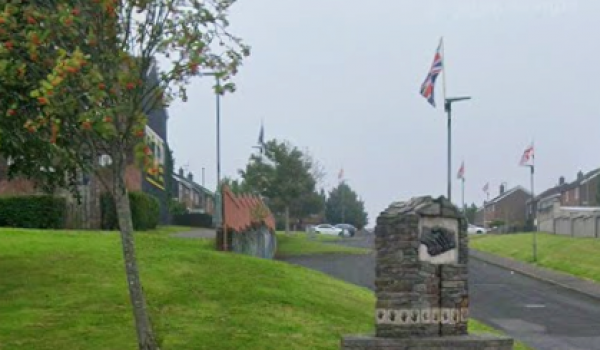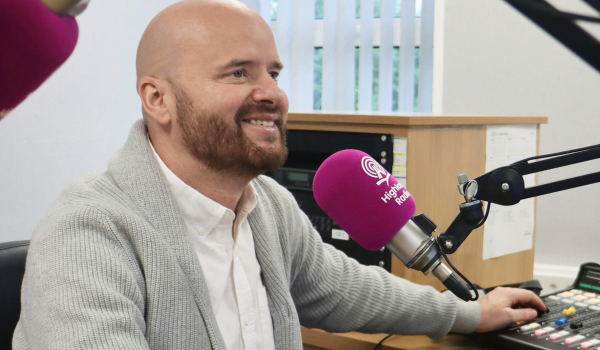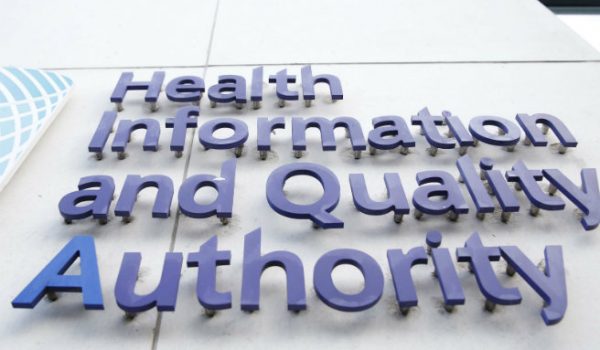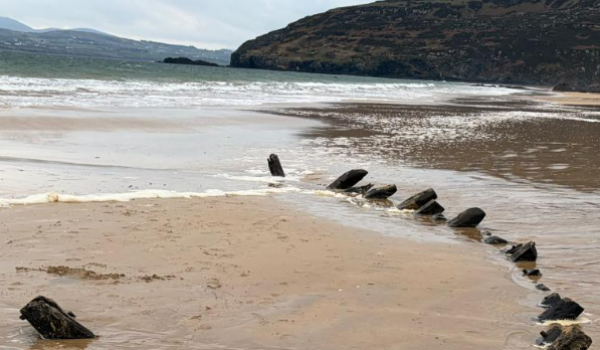
Health Minister Simon Harris is hosting an All-Island Civic Dialogue on the implications of Brexit for Cross-border Health Co-operation today in Dundalk.
Opening the event, Minister Harris referenced a number of important cross border health initiatives on an all-island basis, including the new jointly funded Radiotherapy Unit at Altnagelvin Hospital in Derry, and the arrangement which gives Donegal heart attack patients round the clock direct access to specialist services in Derry.
Minister Harris said he understands that people will have concerns about whether these services will continue after Brexit, and said ensuring continuity of health services are key priorities for him and his department.
He said cross-border health co-operation will continue post-Brexit because it makes perfect sense for it to continue. Minister Harris concluded it is in the best interests of patients and of common benefit to both the Republic of Ireland and Northern Ireland.
**********************************
Minister’s opening speech –
I would like to warmly welcome everyone here today. I know that people have travelled from across the island to be here this morning, and I am very pleased to see such a good level of attendance and broad participation.
The UK’s decision to leave the EU raises significant and complex issues for the island of Ireland. Both North and South, we share many interests and concerns. This is why the Government initiated a series of All Island Civic Dialogue events as part of ongoing consultation work on Brexit.
Today will provide an invaluable opportunity to hear directly your concerns about the potential impact of Brexit for cross-border health co-operation and, most importantly, how we can seek to manage this collectively on an all-island basis.
Brexit poses a number of unprecedented challenges across all sectors but the Government is determined to achieve the best possible outcomes for the island of Ireland.
We have been preparing for some time. Well before the UK referendum, the Government had started to analyse our main areas of concern and to prepare a contingency framework. Following the referendum, this work was built on and intensified. There has also been extensive engagement with all sectors across the island of Ireland.
Early on, the Government identified its four headline priorities arising from Brexit. These priorities are to minimise the impact on our trade and the economy; to protect the Northern Ireland Peace Process, including through maintaining an open border; to continue the Common Travel Area with the UK; and to work for a positive future for the European Union
The Government has carried out an extensive programme of engagement, led by the Taoiseach and Minister for Foreign Affairs and Trade, to ensure that these priorities and the particular challenges Brexit poses for Ireland are understood by our EU partners and the EU institutions. The acknowledgement of Ireland’s unique circumstances by both the EU and the UK has been the result of this major Government campaign of engagement.
The EU directives for the negotiations include very strong acknowledgement of Ireland’s unique circumstances, the need to protect the peace process and the Good Friday Agreement, and our intention to maintain bilateral arrangements with the UK, like the Common Travel Area, which are in conformity with EU law. Ireland also secured the agreement of its EU partners on the need to recognise the unique constitutional status of Northern Ireland.
These are excellent outcomes, showing that the Government’s extensive political, diplomatic and official campaign of recent months has been effective in ensuring understanding and recognition of Ireland’s unique circumstances and specific issues.
The negotiations between the EU and the UK have now started and I would like to take a moment to outline how these will work.
Firstly, it is worth noting that Ireland is negotiating from a position of strength as one of the remaining 27 EU Member States. The EU’s chief negotiator, Michel Barnier, and his team, the Commission Task Force, are negotiating on behalf of EU Member States. He and his team are well prepared for these negotiations, based on extensive consultations with Member States. We have been working very closely with the Task Force to ensure that Ireland’s positions are fully reflected in the negotiations.
There are two phases to the negotiations. The first phase of negotiations – on the UK’s withdrawal from the EU – began in June. This first phase covers a number of issues including the rights of EU citizens in the UK and UK citizens in the EU, financial matters, the unique Irish issues, and the relocation of the EU agencies currently located in the UK – the European Banking Authority and the European Medicines Agency.
The European Medicines Agency plays a vital role in protecting the health of 500 million EU citizens through the scientific evaluation and safety monitoring of human and veterinary medicines. So it is essential that its operations are not negatively affected by the need to relocate from London to another European city.
I believe that Dublin provides the best solution for the new home of the EMA to allow business continuity and maintain current operational efficiency in the interest of European patients. I have submitted Ireland’s bid setting out all the advantages that Dublin has to offer as a safe, multicultural city with excellent connectivity and transport links, as well as the package of financial and other supports that the Irish authorities would provide to assist a move to Dublin.
We will continue to do all that we can to promote Ireland’s bid ahead of a decision being taken in November.
The Taoiseach will meet with his fellow European leaders at the European Council in October to discuss whether there has been “sufficient progress” on the first phase of negotiations to start parallel discussions on the next phase. This second phase will cover the future relationship between the EU and the UK, including the future trading relationship and any possible transition measures.
It is positive to see convergence between the UK and Ireland on the shared objectives to protect the Good Friday Agreement and the gains of the peace process, and good progress has been made on the Common Travel Area. However, it is clear that a lot of work is still required ahead of any decision by the European Council on whether sufficient progress has been made.
The negotiations are going to be a long process and the outcome is far from determined. In a worst-case scenario, if no deal is reached in the negotiations then the EU Treaties would cease to apply to the UK on 29 March 2019, although the European Council in agreement with the UK could unanimously decide to extend this deadline. A lack of agreement, resulting in a disorderly withdrawal, would be damaging for all concerned, particularly Ireland.
That is why we are keen that the negotiations progress in a positive and constructive manner. We want the future relationship between the EU and the UK to be as close and positive as possible and we will work hard with all our partners to achieve that.
While Ireland doesn’t want the UK to leave the European Union, Single Market or the Customs Union, that is ultimately a decision for the UK.
We greatly value our membership of the European Union. We value our access to the Single Market and the benefits our exporters derive from EU trade agreements with other countries. More broadly, we value being part of a Union with other like-minded democracies which share our values and interests.
The European Union has opened up our economy, offered us the opportunity to prosper and championed the progressive journey of social reform we have undertaken together.
It is important to remember the enormous achievements of the Union over very many years. The EU remains the best structure for advancing prosperity, promoting peace, and confronting the many and complex challenges countries face.
Indeed, this has been particularly evident with regard to Northern Ireland. The transition from violent conflict to peace and political stability in Northern Ireland stands as a positive example of the European peace project.
The EU provides fundamental support to the deepening of peace and reconciliation which is relied upon and supported by people, North and South, and across all communities. It has directly underpinned the Northern Ireland Peace Process in several ways. The common EU membership of Ireland and the UK has facilitated an island with an open border, common trading and regulatory standards, a shared framework of inter-governmental co-operation and a sense of shared European identity which provides a crucial reassurance to the minority nationalist community in Northern Ireland.
The EU has also provided direct financial supports administered through the Special EU Programmes Body, which is a body established as part of the Good Friday Agreement. The EU PEACE and INTERREG programmes have made an enormous contribution to cross-border co-operation and remain important drivers of regional development. As part of the Government’s work on Brexit, agreement has been reached on a safeguard clause that has enabled Letters of Offer to issue to programme beneficiaries for both the PEACE and INTERREG programmes.
Now that that short term objective has been achieved, the medium term objective is to ensure the full and successful implementation of the programmes out to 2020, during a period in which the UK is expected to leave the EU and the UK allocation of European Regional Development Funding funding may no longer be available. The long term objective is to secure agreement to successor programmes post-2020. Work is continuing to ensure the successful implementation of the current programme as well as successor programmes post-2020.
With regard to the health sector and cross-border co-operation specifically, under the current programme, INTERREG V, approximately €47.7m worth of funding has been offered to eight innovative cross-border health and social care initiatives. This funding will be used to reduce health inequalities, transition health services from an institutional to community-based setting and increase efficiencies through increased use of e-health technologies, on both sides of the border.
Under the previous programme, INTERREG IVA which operated between 2009 and 2015, €30 million was also allocated to the Co-Operation and Working Together Partnership for cross-border health and social care initiatives.
I’d like to acknowledge the role of our Chief Rapporteur today, Tom Daly, in that regard who is the former Director General of CAWT and only retired recently. Although we have already gotten him out of retirement for today’s event!
I’m also delighted that we have the current Director General of CAWT, Damien McCallion, here as one of our panellists along with:
- Ruth Taillon, who is the Director of the Centre for Cross Border Studies,
- Eddie Rooney, who is the former CEO of the Northern Ireland Public Health Agency,
- and Muiris O’Connor, who is Head of the R&D and Health Analytics Division in my Department.
We are lucky to have a panel of such distinguished guests and I am very much looking forward to the discussion, which will be chaired by our moderator today, RTE’s Northern Ireland Editor, Tommie Gorman. I’d like to thank you all for taking part in today’s important event.
I’ve spoken already about INTERREG. Many other cross-border projects have been undertaken in recent years that make a significant difference to the lives of patients both North and South.
These include the new Radiotherapy Unit at Altnagelvin Hospital in Derry, which offers cancer patients from Donegal access to radiotherapy across the border in Derry, reducing their travel time significantly.
In July 2016, a new Hybrid Cardiac Catheterisation Laboratory opened at Crumlin Hospital in Dublin, which provides emergency surgery to babies born with congenital heart disease in Northern Ireland, in addition to providing services to patients from the South.
And Donegal patients having a STEMI heart attack now have 24/7 access to Primary Percutaneous coronary intervention (pPCI) services in Altnagelvin hospital.
In addition to the above, potential areas for future collaboration continue to be identified and considered.
I understand that many of you will have concerns about whether these services and cross-border health co-operation will continue following the UK’s withdrawal from the EU. I would like to reassure you that ensuring continuity of health services and avoiding any changes that would have a negative impact on human health are the key priorities of my Department in addressing the implications of Brexit.
Cross-border health co-operation will continue post-Brexit because it makes perfect sense for it to continue. It is in the best interests of patients and of common benefit to Ireland and Northern Ireland.
Brexit will undoubtedly pose challenges for the health sector, as it will for every other sector. But I have no doubt that the strength and maturity of networks and relationships that have built up over time will be of great benefit as we seek to manage the implications of Brexit collectively on an all-island basis.
It is important to be clear that until the UK formally withdraws from the Union, it remains a full member, with all of its existing rights and obligations and there are therefore no immediate changes in the area of health. The UK’s no longer being an EU Member State may present extra hurdles that we need to overcome but I can reassure everyone here today that commitment to cross-border health co-operation remains unwavering.
Work is underway to examine and address the implications of Brexit for the health sector. My Department, the HSE and other agencies are continuing to conduct analysis, preparations and contingency planning to mitigate the impact of Brexit on the health sector.
Ireland’s preparations for Brexit continue to be strongly co-ordinated from the centre of Government, and regular contact is being maintained with Departments on cross-cutting issues of relevance for the health sector. Engagement is also continuing at political and official level with the EU, other Member States, and the UK as appropriate.
The purpose of today’s Dialogue event is to hear from you about your concerns regarding the implications of Brexit for cross-border health co-operation, as well as any potential solutions or ideas you wish to put forward. This will be a very valuable input to the work of my Department, its agencies and wider Government on Brexit.
I do not wish to pre-empt the outcome of our panel discussion or breakout sessions.
However, I will provide a flavour of some issues being considered by my Department as part of its contingency planning.
The issue of access to health services in Northern Ireland, the UK and other EU member states under the Treatment Abroad Scheme or Cross Border Directive is being considered.
The health sector has a highly mobile workforce and how Brexit may impact on the health and social care workforce, including the recognition and assurance of professional qualifications is being examined.
On regulatory issues, it is clear that having a single set of rules across the European Union is enormously helpful – to protect human health, to ensure consumer protection and to provide a level playing field for industry. The implications of the UK no longer being part of a harmonised regulatory system in relation to food safety standards, pharmaceuticals, medical devices and cosmetics are being examined.
The implications of Brexit for networks and organisations such as the EU Rapid Alert System for Food and Feed, European Reference Networks on rare diseases, or the European Centre for Disease Prevention and Control are also under consideration.
Ensuring continuity in the supply of medicines and medical devices following the UK’s departure from the EU is a priority.
The majority of these issues are all related to wider issues that are not exclusive to the health sector, or indeed to Ireland. While Brexit will have a particular impact on Ireland, we must remember that we are one of the 27 remaining EU Member States and that the EU’s interests are Ireland’s interests.
I am greatly looking forward to hearing your comments and concerns regarding the implications of Brexit for cross-border health co-operation and I would encourage you all to think about the types of interventions required to mitigate these impacts. Our focus must be on collectively finding solutions to the challenges Brexit poses so that we can continue to make important progress in relation to cross-border health co-operation.
I’ll finish by saying again that I am delighted that we are here today to consider the implications of Brexit cross-border health co-operation. I want to take this opportunity to thank you all for giving of your time and energy to participate in today’s event.





